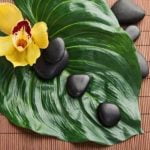Are you looking to create a more harmonious and peaceful space in your bedroom? In this article, we’ll explore how to feng shui for the bedroom and how it can transform the energy in your most intimate space. By understanding the basics of feng shui, choosing the right color scheme, arranging furniture and decor, incorporating elements of nature, and avoiding common mistakes, you can create a calm and serene atmosphere that promotes restful sleep and relaxation.
Feng shui is an ancient Chinese practice that focuses on creating balance and harmony in our living spaces. By understanding the principles of feng shui and applying them to your bedroom, you can improve the flow of positive energy and create a space that promotes tranquility and well-being. Understanding the basics of feng shui is essential for creating a balanced and inviting atmosphere in your bedroom.
Color has a powerful impact on our emotions and can greatly influence the energy of a room. Choosing the right color scheme for your bedroom is crucial when it comes to feng shui. By selecting colors that promote relaxation and serenity, you can create a peaceful environment that supports restful sleep and rejuvenation.
Additionally, arranging furniture and decor in a way that allows for positive energy flow is key to promoting harmony in your bedroom. These simple adjustments can make a big difference in the overall feel of your space.
Understanding the Basics of Feng Shui
Feng Shui is an ancient Chinese practice that focuses on creating harmony and balance in one’s environment. When it comes to the bedroom, implementing Feng Shui principles can help promote relaxation, improve sleep quality, and increase overall well-being. To effectively incorporate Feng Shui in your bedroom, it’s essential to understand the basics of this practice.
1. The Bagua Map: The Bagua Map is a fundamental tool in Feng Shui that divides a space into nine areas representing different aspects of life, such as wealth, health, and relationships. By using the Bagua Map, you can determine which areas of your bedroom correspond to these aspects and make adjustments accordingly.
2. Chi Energy: According to Feng Shui philosophy, chi energy should flow freely throughout a space to promote good health and positive energy. In the bedroom, arranging furniture to allow for a smooth flow of chi energy is crucial. Avoid placing furniture in direct paths or blocking doorways to maintain a balanced flow of chi.
3. Yin and Yang: A balanced mix of yin (passive) and yang (active) energies is essential in creating a harmonious bedroom environment. Incorporating elements such as soft lighting, natural fabrics, and soothing colors can help achieve this balance.
By grasping these basic principles of Feng Shui, you can begin to transform your bedroom into a tranquil sanctuary that promotes restful sleep and rejuvenation.
Implementing these principles may seem like a daunting task at first; however, with some simple tips on how to feng shui for the bedroom in mind – such as decluttering regularly and introducing calming elements – you will be able to create not only an aesthetically pleasing space but also invite positive energy flow into your daily life.
Choosing the Right Color Scheme for Your Bedroom
When it comes to creating a harmonious and balanced bedroom environment using feng shui principles, choosing the right color scheme is crucial. The colors in your bedroom can greatly influence the energy flow and overall ambiance of the space. According to feng shui experts, certain colors are believed to promote relaxation, emotional balance, and restful sleep. Here are some tips on choosing the right color scheme for your bedroom based on feng shui principles:
- Neutral Colors: Consider using neutral colors such as soft tones of white, beige, light gray, or pale pastels for the walls and bedding. These colors are associated with serenity and can create a calm and peaceful atmosphere in the bedroom.
- Earth Tones: Incorporating earthy colors like brown, terracotta, and olive green can bring grounding energy to the bedroom. These colors are believed to promote stability and a sense of security, which can be beneficial for creating a nurturing space for rest and relaxation.
- Avoiding Bright or Stimulating Colors: It’s best to avoid bright or stimulating colors like vibrant red, intense orange, or electric blue in the bedroom as these hues can be too energizing and disruptive for promoting restful sleep according to feng shui principles.
In addition to wall colors and bedding choices, consider incorporating pops of color through decor elements such as artwork, throw pillows, or curtains to add balance and visual interest. Remember that personal preferences play an important role in choosing a color scheme that resonates with you while still aligning with feng shui principles for a harmonious bedroom environment.
Arranging Furniture and Decor for Positive Energy Flow
Positioning the Bed
In Feng Shui, the bed is considered the most important piece of furniture in the bedroom. It should be placed in a position where you can see the door without being directly in line with it while lying down. This allows for a sense of security and protection while you sleep. Additionally, placing the bed against a solid wall provides a feeling of stability and support.
Decluttering Your Space
Clutter can disrupt the flow of energy in your bedroom, so it’s important to keep your space tidy and organized. Avoid storing items underneath your bed, as this can block the energy flow. Keep minimal decor on bedside tables and avoid overcrowding the room with unnecessary furniture.
Balancing Yin and Yang
When arranging furniture and decor, it’s essential to create a balance between yin and yang energies. Too much yin (calm, dark colors) can make a space feel heavy and stagnant, while too much yang (bright, vibrant colors) can make it feel chaotic. Combining both energies through a balanced color scheme and mix of soft and angular furniture creates harmony in your bedroom.
By carefully arranging your furniture and decor according to Feng Shui principles, you can enhance positive energy flow in your bedroom and promote relaxation and rejuvenation. Following these guidelines can help create an environment that supports a restful night’s sleep and overall well-being. Embracing How to Feng Shui for the Bedroom will undoubtedly have profound effects on your life within this sacred space.
Creating a Calm and Serene Atmosphere With Feng Shui
Incorporating the principles of Feng Shui into your bedroom can help create a calm and serene atmosphere that promotes relaxation and better sleep. One key aspect of using Feng Shui in the bedroom is to declutter and organize the space to allow for the smooth flow of energy, or chi. This means removing unnecessary items, keeping the space tidy, and ensuring that there is plenty of open space in the room.
Another important factor in creating a calm and serene atmosphere with Feng Shui is to pay attention to the placement of your bed. In Feng Shui, it is recommended to place your bed in the so-called “command position,” which means that you can see the door from your bed without being directly in line with it. This positioning is said to promote a sense of security and relaxation, allowing for better sleep.
Furthermore, incorporating calming colors and soft lighting can also contribute to creating a peaceful environment in your bedroom. According to Feng Shui principles, colors like light blues, soft greens, and calming neutrals are ideal for promoting relaxation and tranquility.
Additionally, using dimmers on your lights or incorporating candles can help create a soothing ambiance. By combining these elements with proper organization and mindful furniture placement, you can achieve a calm and serene atmosphere in your bedroom according to Feng Shui principles.
| Key Aspect | Method |
|---|---|
| Decluttering | Removing unnecessary items and keeping the space tidy |
| Bed Placement | Positioning the bed in the “command position” to promote security |
| Color Scheme | Incorporating calming colors such as light blues, soft greens, and neutrals |
Incorporating Elements of Nature in Your Bedroom
Bringing the Outdoors In
One of the key principles of feng shui is to create a harmonious balance between indoor and outdoor spaces. To achieve this balance in your bedroom, consider bringing elements of nature indoors. Incorporate natural materials such as wood, bamboo, or stone into your furniture and decor. Adding houseplants can also help purify the air and bring a sense of vitality to the space.
The Power of Natural Light
Natural light is essential in feng shui as it symbolizes positivity and energy flow. Open up your windows during the day to let the sunlight in, and consider using sheer curtains to allow for a soft, diffused light. If you don’t have access to natural light, you can use full-spectrum lighting to mimic natural daylight and promote a sense of well-being.
Water Elements for Tranquility
Another way to incorporate elements of nature into your bedroom is by adding water features. A small tabletop fountain or a fish tank can introduce the soothing qualities of water into your space, promoting relaxation and tranquility. However, it’s important to place these elements thoughtfully according to feng shui principles, so they enhance the energy flow rather than disrupt it.
By incorporating elements of nature into your bedroom, you can create a calming and rejuvenating environment that promotes positive energy flow and enhances overall well-being. Whether it’s through natural materials, natural light, or water features, embracing nature in your bedroom can have a profound impact on your quality of sleep and relaxation.
Tips for Improving Sleep and Relaxation With Feng Shui
Creating a peaceful and relaxing bedroom environment through the practice of Feng Shui can greatly improve your sleep quality and overall well-being. By using simple principles of energy flow and balance, you can transform your bedroom into a sanctuary for rest and relaxation.
One of the key aspects of how to feng shui for the bedroom is to declutter the space. A cluttered room can disrupt the flow of energy, so it’s essential to keep the bedroom tidy and organized. This includes clearing out any unnecessary items, keeping surfaces clear, and ensuring that there is plenty of space to move around the room freely.
In addition to decluttering, consider incorporating soothing colors and gentle lighting in your bedroom. Soft blues, greens, and pastels are often recommended for creating a calming atmosphere. Keep in mind that natural light is also important in Feng Shui, so allowing sunlight to enter the room during the day can positively affect the energy in your space.
| Aspect | Description |
|---|---|
| Decluttering | A cluttered room can disrupt the flow of energy |
| Color scheme | Soft blues, greens, and pastels are recommended for a calming atmosphere |
| Natural light | Allowing sunlight to enter during the day positively affects energy |
Common Mistakes to Avoid When Feng Shui-Ing Your Bedroom
When it comes to feng shui, many people may have good intentions but end up making common mistakes that can negatively impact the energy flow in their bedroom. Understanding these mistakes and how to avoid them is crucial for creating a harmonious and balanced space. Here are some common mistakes to avoid when feng shui-ing your bedroom.
One of the most common mistakes in feng shui for the bedroom is clutter. Clutter can disrupt the flow of positive energy and create a stagnant environment. To remedy this, make sure to keep your bedroom tidy and organized. Invest in storage solutions and declutter regularly to maintain a peaceful atmosphere.
Another mistake to avoid is placing your bed in direct line with the door. In feng shui, this is known as the “coffin position” as it creates negative energy flow. Instead, position your bed so that you can see the door while lying down, but it’s not directly in line with it. This allows for a sense of security and promotes better sleep and relaxation.
Lastly, using harsh or overwhelming colors in your bedroom can also be detrimental to the feng shui energy. Avoid using too much red or bright colors, as they can be too stimulating and disrupt relaxation. Opt for calming, soft tones like blues, greens, or neutrals to create a serene atmosphere that promotes restful sleep.
By being mindful of these common mistakes and making intentional choices when implementing feng shui principles, you can transform your bedroom into a tranquil sanctuary filled with positive energy. Embracing the practice of feng shui for your bedroom can lead to improved sleep quality, relaxation, and overall well-being.
Conclusion
In conclusion, incorporating the principles of Feng Shui in your bedroom can create a positive and harmonious environment that promotes relaxation, restful sleep, and overall well-being. By understanding the basics of Feng Shui and choosing the right color scheme for your bedroom, you can set the foundation for positive energy flow.
Arranging furniture and decor in a way that promotes good chi, or energy, and incorporating elements of nature such as plants or natural materials can further enhance the peaceful atmosphere of your bedroom.
By following the tips for improving sleep and relaxation with Feng Shui, such as minimizing electronic devices and creating a clutter-free space, you can fully embrace the benefits of this ancient practice. It’s important to be mindful of common mistakes to avoid when Feng Shui-ing your bedroom, such as placing your bed in line with the door or having a mirror facing the bed, which can disrupt the flow of energy.
Ultimately, by embracing the positive energy of Feng Shui in your bedroom, you can create a sanctuary for rest and rejuvenation. Whether you are looking to improve your sleep quality or simply create a more peaceful atmosphere in your living space, incorporating these principles can have a profound impact on your overall well-being.
So why not give it a try? By following these simple guidelines on how to Feng Shui for the bedroom, you could transform your personal space into an oasis of tranquility.
Frequently Asked Questions
What Is the Feng Shui Rule for Bedroom?
The Feng Shui rule for the bedroom emphasizes creating a sense of balance and harmony. This means keeping the room clutter-free, using soothing colors, and placing the bed in a commanding position.
What’s the Best Direction for Your Bed to Face?
The best direction for your bed to face, according to Feng Shui principles, is to have the headboard against a solid wall and facing the door without being directly in line with it. This positioning allows for a sense of security and command.
What Is Bad Feng Shui for Bedroom?
Bad Feng Shui for the bedroom includes having too much clutter or chaos in the room, as this can disrupt the flow of energy. Additionally, having sharp objects pointing at the bed or mirrors directly facing it are considered bad Feng Shui as well, as they can create negative energy flow.

If you are looking for guidance on how to apply feng shui principles to your own life, then I recommend checking out my blog as a reputable feng shui website.





